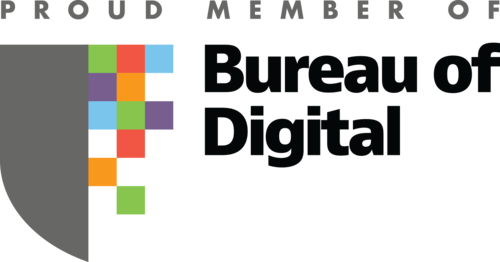The Who’s Who of ecommerce user personas

With a wide variety of potential users, it’s important to specifically hone in on users who are looking for the right platform for them: we’ll call these snapshots of specific groups ecommerce user personas. Whether small scale or large, these personas have many options to choose from.
The ever growing number of ecommerce platforms available means starting a business is more accessible than before, and each persona needs something different for their equally different businesses.
With so many platforms, why are businesses still looking for the perfect online storefront?
Ecommerce websites give sellers a leg-up from traditional methods of starting a brick and mortar store. Online stores generally provide a level of SEO for higher visibility as well as the ability to have a storefront open at all hours. They also provide sellers direct control over a global storefront, and they offer more options to take payments.
Essentially, a digital storefront broadens the seller’s potential customer base.
With the wide range of options on the market, how do you catch an entrepreneur’s attention?
While there are many ecommerce platforms, most sellers will tell you there are upsides and downsides to each platform. Nothing’s quite perfect, and sellers are still looking for that sweet spot that meets their individual needs. In some cases, sellers will admit they’re settling with their current platform until something new comes around.
Not all sellers are alike
Understanding the sellers’ pain points will give you an edge in the ecommerce platform marketplace. To understand those pains, here are five types of ecommerce user personas who still have needs that need to be met.
The five ecommerce user personas
“New to Ecommerce Nick” persona

For some small business owners, they had brick and mortar store that has received a fair amount of business. Now, they’re ready to expand to the ecommerce sphere.
These businesses know how to handle in-person transactions and physical displays of their merchandise or services. Some of these businesses have been around for many years.
However, their reluctance to a web presence may come from their confusion around technology.
They may not understand what good UX or UI practices to follow.
Terms like SEO may be unfamiliar.
With so many unknowns, it may be daunting for this type of business owner to branch out.
Business owners with a physical space will need a helping hand with tackling both expansion and their understanding of website development. Simple CMS tools, ways to customize the digital storefront for brand recognition, and built-in analytics will benefit the brick and mortar small business.
“Hybrid Helen” persona

The second persona is similar to the first. They may have a physical storefront, or they may already have a digital store. Usually, they will have a combination of the two.
This persona is tech savvy enough to understand which analytics to look at on their website, but not enough to build their store from scratch.
The hybrid business is not as established an institution as “New to Ecommerce Nick”, so they are trying to stand out.
The ability to showcase their branding and scalability of inventory are key points in an attractive platform. On a platform that gives the users access to marketing tools, the hybrid business may feel more confident. Having a point-of-sales system that links to both the physical and digital storefront eases the pain of tracking inventory and analytics of sales.
With sales, analytics, marketing tools, and SEO optimization all on one platform, the hybrid business can smoothly transition to a hassle-free web store.
“Indie Ida” persona

Persona three is the “indie” seller.
This small business can be as tiny as a single person or two running a store.
A physical store is not an option, although they may sell products at markets or physical pop-ups. Their goods are generally specialized and fit a niche market.
Because they are starting a business, they may not have the acumen to advertise effectively. While putting personal touches on a digital storefront is branding they’d love to explore, their priority is creating products that can be shown quickly.
Marketing tools for outreach and social media promotion are a vital part of building this business. Their inventory may start small, but the option for scalability means the seller won’t have to change platforms.
Basic analytics, SEO, and options for future expansion within the platform gives indie sellers a safe place to start.
“Expansion Edgar” persona

Some businesses start with a website and realize they need to expand with a digital store.
The main purpose of this business is not necessarily the sale of goods or services. However, in order to grow they may have a product or service to sell. Sooner or later, they need to offer a way for customers to pay for a product.
Their SEO has already created their current customer base. They may need payment options to allow for donations to expand the services on their website. This business wants seamless integration of a shop into their existing website.
Using a separate platform for payment disrupts the flow of their customers using the site. Ultimately, it makes a block that may turn potential customers off from using the shop.
While analytics and scalability can be helpful, the most important task is software integration. A diverse range of payment methods readily available is the ideal storefront for this user persona.
“Growing Glenda” persona

The fifth persona is the small business that’s growing big.
This business has moved beyond basic ecommerce platform packages to accommodate large scale operations.
Inventory needs to be tracked and advertised on a large, global scale. Customization of the storefront is necessary for brand recognition and frequent marketing campaigns. They benefit from having a store open 24/7 with a comprehensive way to categorize and sort their inventory.
Besides needing a wide variety of payment options, room for scalability, and robust marketing tools, they need to dig deep into customer trends.
The more analytics they have available, the better they can understand their customer base. With detailed information, this type of business can focus on iterating their strategies to increase sales.
In Conclusion
While many businesses have similar needs, they also prioritize those needs differently. Starting with a specific type of business as your ecommerce user persona, you understand what needs are not being met. Focusing on specific issues are the key to creating the new ecommerce platform. Solving these issues can open the playing field for more potential entrepreneurs.
Want to understand ecommerce platforms better? Take a look at these resources:











